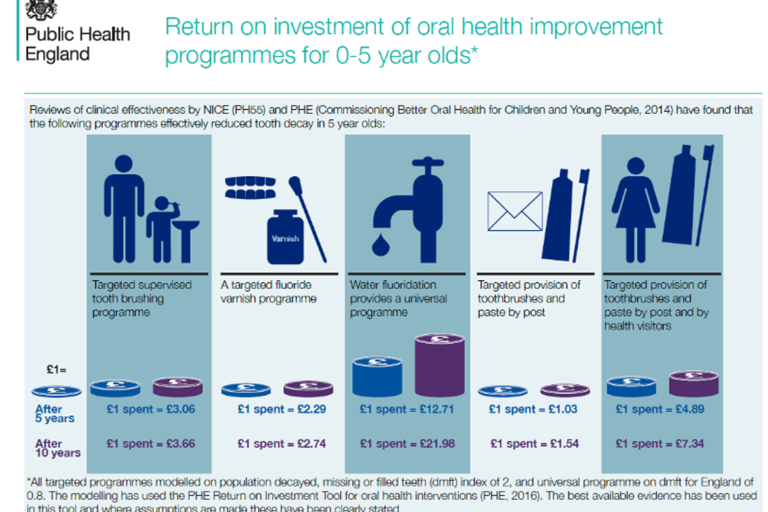Evidence for Interventions
The evidence base for interventions that promote good oral health is summarised below. Some interventions are impactful at certain points of the life course for instance breastfeeding in infants. Other factors such as diet and toothbrushing are influential throughout the life course.
Promoting and supporting exclusive breastfeeding around the first 6 months of a baby’s life and encouraging continuing breastfeeding whilst weaning. The WHO recommend continuing breastfeeding whilst weaning for up to two years of age or beyond.
Encouraging a diet low in sugar and high in non-starchy vegetables and fruit throughout the life course.
Adults and children should brush their teeth twice a day with a fluoride containing toothpaste (recommended strength of fluoride varies with age). Assistance should be provided for those who may require help with toothbrushing.
Supporting individuals to be smokefree.
Advised alcohol intake should be inline with the CMO guidance and support for those who are drinking beyond this recommendation. North Tyneside Alcohol JSNA has further details on best practice.
Ensuring good diabetic glycaemic control in individuals. NICE diabetes contains details on best practice policies.
Fluoride occurs naturally and can be present in water in varying concentrations. In some areas with low natural fluoride, fluoride is added to public drinking water to improve dental health. 1 in 10 people in England currently have fluoride added to their drinking water.29 The drinking water in North Tyneside has fluoride added.
In 2022 OHID published a report on the health impacts of fluoridation. The report summarised that dental health was improved in fluoridated areas and that this benefitted those in the most deprived areas most.
NICE recommends that individuals living in care homes should have their mouth need assessed on admission, their mouth needs recorded in their personal plan, and should be supported to clean their teeth twice a day or perform daily denture care.
Reviews of clinical effectiveness by NICE and PHE have found that the programmes shown in Figure 14 effectively reduce tooth decay in 5- year-olds and have a good return on investment. Water fluoridation has the best return on investment by far, closely followed by targeted provision of toothbrushes and toothpaste by post and by health visitors.

